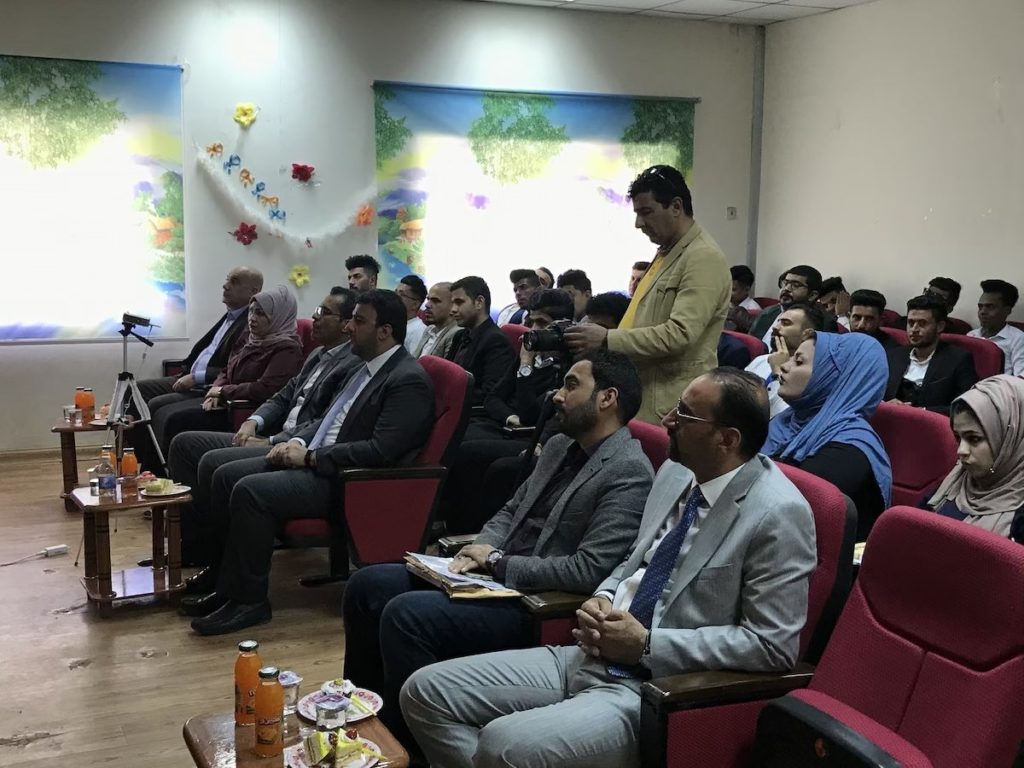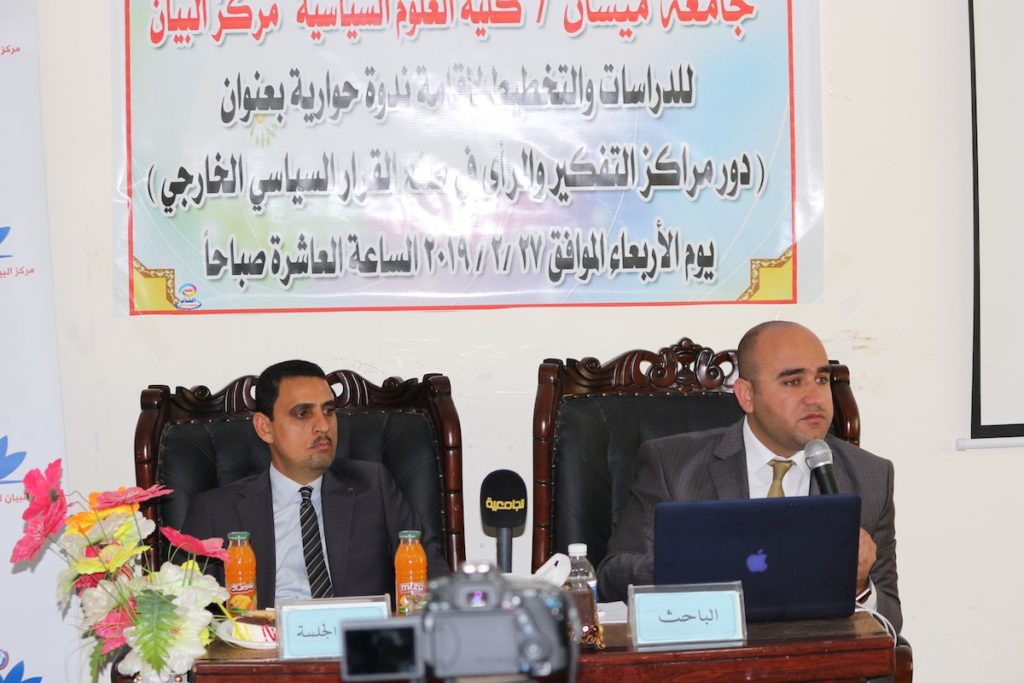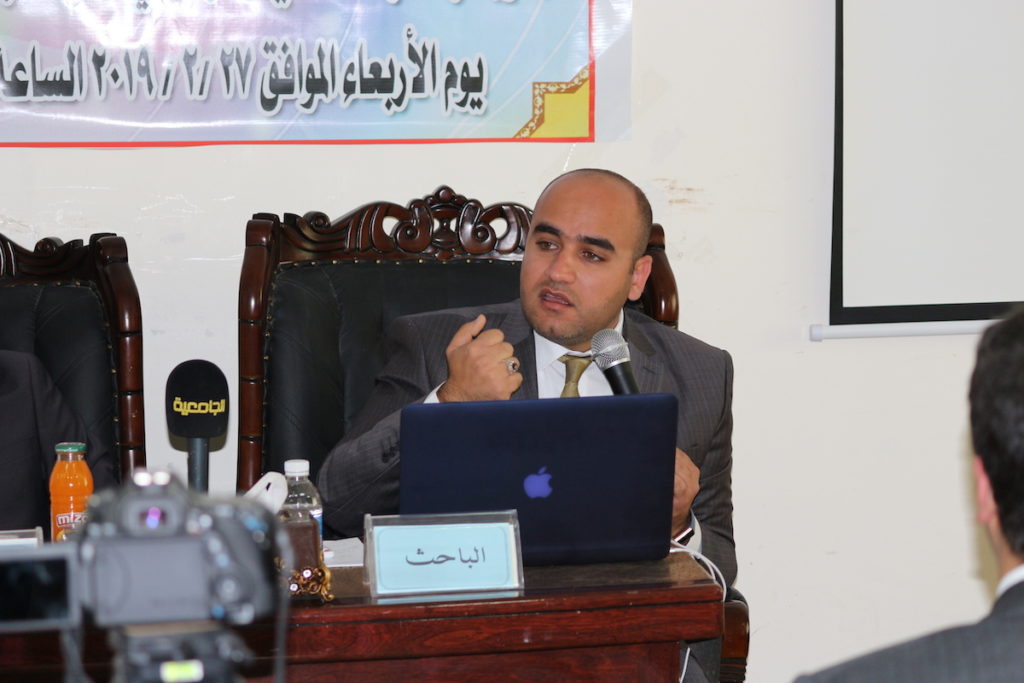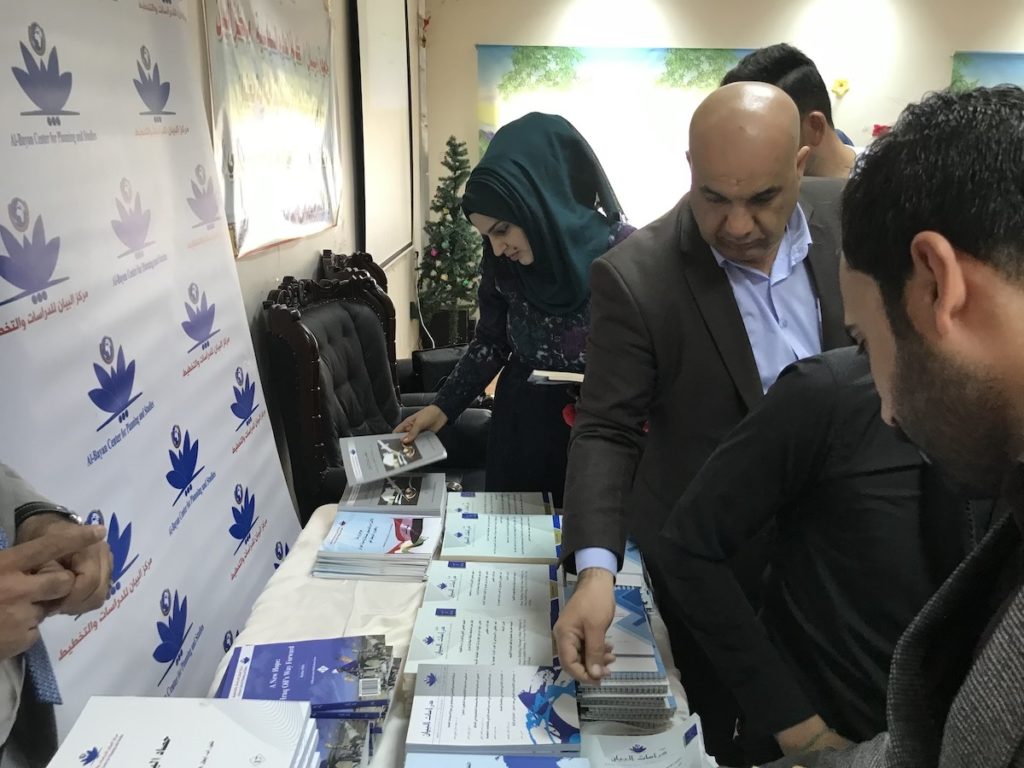As part of the Centre’s series of activities for the year 2019, and in recognition of the current importance of think-tanks, al-Bayan Centre for Planning and Studies, in conjunction with the University of Maysan – Faculty of Political Science – held a seminar entitled “the role of think-tanks in foreign policy decision-making; lessons learned” – on Wednesday, 27thFebruary 2019.
The seminar was attended by a group of academics and students from the university. Ayman al-Faisal, a researcher at al Bayan Centre, presented a research paper which discussed the important role played by research centres in the current climate of rapid change in the international order, not least the role they play in providing decision makers with the knowledge they require to select the most effective alternatives.
In his paper, al-Faisal highlighted the importance of these centres and the role they play in the decision-making process at the international level, on the one hand, and at the domestic or local level, on the other. Al-Faisal also broached the subject of the different stages of the emergence of these centres, and made reference to the most important global centres, as well as the global rankings and distribution of these centres on a country basis .
Al-Faisalpointed out that the distinctive attributes and role of decision-makers as being influential factors in international relations. There is no doubt that statesmen are – first and foremost – decision-makers. As a result, they are the real players on the international stage, working as they do on behalf of and in the interests of the state. This means the influence of think-tanks on political decision-making is an important issue both at the international and local levels. This followed on from the development of international relations and foreign policy of states, as well as the emergence of new international institutions and actors on the international scene not represented by international organizations, multinationals and others, and their impact on foreign policy.
Al-Faisal also expressed the view that through the research they undertake, think-tanks assistthe foreign policy decision-maker, both directly and indirectly, with obtaining the most important information, research and studies pertinent to a particular issue.
At the conclusion of his presentation, al-Faisal indicated that these centres will have a prominent place in the foreign policy decision-making process, especially with the constant shift in international relations; where they will have an important role in collating and analysing information which effectively influences and shapes future international agendas. However, all this will very much depend on the nature of country’s domestic politics and the work needed to address some of the difficulties facing research centres at the present time, which include tackling the lack of funding and the lack by some of the means to communicate their activities, as well as the difficulty they face, in certain instances, with accessing information and statistics, on the one hand; and students and researchers lacking some of the most basic and important scientific research tools, on the other.








